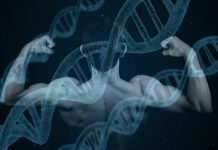Fat soluble vitamins (together with a brief description) are as follows:
A (axerophthol) – retinol (A1) and 3-dehydroretinol (A2), provitamin: carotenes, carotenoids (ie orange and red dyes – especially β-carotene)
- sources: yellow, orange, red vegetables, leafy vegetables, parsley, melon, apricots, whole milk, yolk, fish oil, liver
- function: healthy skin, vision, immunity, antioxidant
- deficiency: night blindness, decreased potency and immunity, deterioration of the skin
- RDI: about 800µg
D (calciferols) – D3 (calciol, cholecalciferol) forms the body itself from the sun (animal form), D2 (ercalciol, ergocalciferol) is found in plants, there is also D1, D4, D5
- sources: sunlight, fish oil, liver, milk and eggs (if the animals have enough sunlight)
- function: immune system, absorption of calcium and phosphorus – bones, teeth
- deficiency: osteoporosis, susceptibility to respiratory diseases
- RDI: about 5µg
E – tocopherols (α, β, γ, δ), tocotrienols (α, β, γ, δ)
- sources: vegetable oils, almonds, sunflower seeds, hazelnuts, to a lesser extent leafy vegetables and animal fats
- function: effective antioxidant, sex cell production, muscle and nerve tissue
- deficiency: disorders of fat metabolism, infertility, decreased immunity
- RDI: about 10mg
K – phylloquinone / phytonadione (K1), menaquinone (K2), K3 (synthetic form which is also a provitamin for K2)
- sources: leafy vegetables, to a lesser extent soy, rapeseed, olive oil (K1), dairy products, eggs, meat (K2), bacterial synthesis (K2 from K1)
- function: blood clotting, wound healing, bone mineralization
- deficiency: anemia, bruising, slow bone repair
- RDI: about 100µg
Sometimes also vitamin F is mentioned (which in fact is just another term for essential fatty acids).
Back: Vitamins















